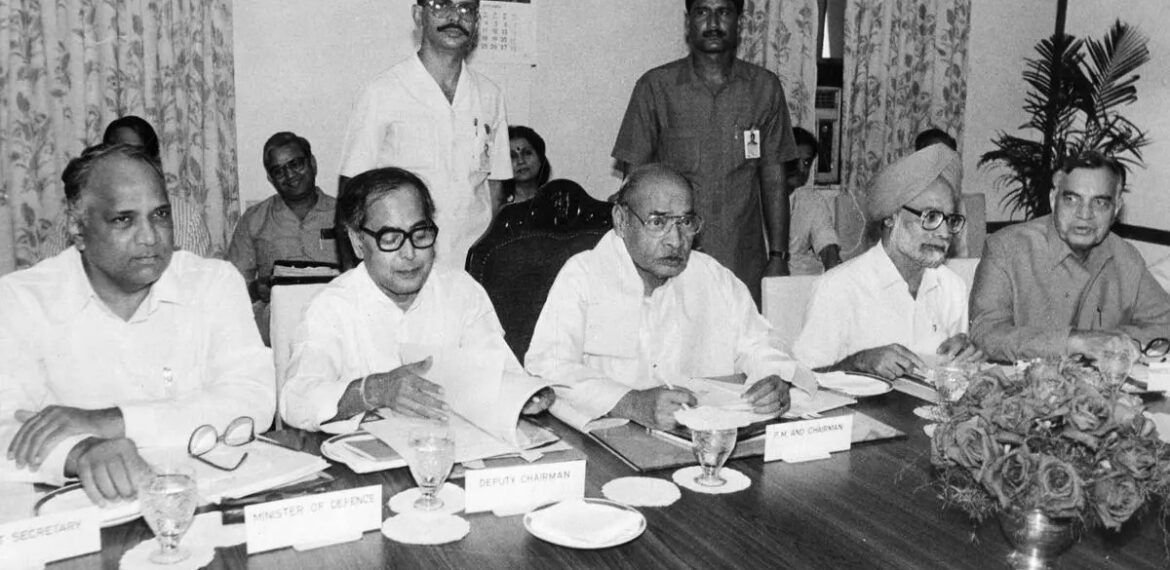An essay titled “Liberalisation and Liberalism in India”, written by popular economic journalist Ashok Desai, appeared in the Liberal Times magazine in 1995.
Ashok Desai traces the history of Indian laws and economic policy to be a continuation of war time measures put in place by the British government and its allies, while fighting world war II. Unfortunately, a long shadow of these laws still linger.
India did see large reforms in 1991, but Desai made another prominent observation four years later, that no one celebrated these reforms. And that they were largely brought in by stealth. This is a deep reflection on liberalism in India. While India is diverse, acceptance of liberalism in India is still behind.
Individual freedom and the value that a person may do what one likes, as long as it does not impinge on other’s freedom, needs to be advocated for.
This piece is as relevant today as it was, back then. Here’s an excerpt from it, reproduced below:
This comprehensively controlIed system was highly inefficient and ran into a crisis every few years. But when this happened, some of the controls were relaxed to introduce competition
and to curb inefficiency. As the economy grew, the old-style, labour-intensive controls also became impractical; so they were modified to accommodate the growth in the size and complexity of the system. But as soon as a crisis was over, the system tended to rerun to its old mode. This was because powerful interests grew up in politics, bureaucracy and industry which benefited from the controls.
The bouts of relaxation of controls were termed liberalisation episodes by Bhagwati and Srinivasan, and so they were in a sense. In every episode certain controls – mainly industrial licensing and import licensing – were relaxed. But liberalisation had a practical aim, namely to reduce systemic inefficiency to sustainable levels. There was economic liberalisation, but there was no liberal philosophy behind it.
In my view, liberal economic reforms since 1991 have always been on the defensive. It is not for lack of success; starting from an abyss of collapsed growth and self confidence, the economy is growing today at a very creditable rate which will touch 11 percent this year. The balance of payments, which was impossibly adverse only four years ago, is strong today. Industry is growing at 13 percent. Apart from these cold statistics, there is for the first time a sense of excitement in the air; people feel that there are undefinable opportunities, unquantifiable hope. This is a revolutionary change in the atmosphere, and it is entirely due to the economic reforms. And yet, no one boasts of the reforms, least of all those who did the reforms. No one celebrates the reforms. A certain shame faced modesty pervades the reforms. This is strange and inappropriate…
This shyness, this awkwardness arises from the fact that liberty is not accepted in India as the ultimate goal of political systems. This is why, for instance, there is so much paranoia about foreign investments. The foreign enterprise is seen as an intruder upon the economic space of the Indian enterprise, just as yesterday, the large enterprise was seen as an intruder on the space of the small enterprise, or the private enterprise as an intruder on the space of the government enterprise. The idea that the consumer is sovereign, that it is in the consumer’s interest that all enterprises, Indian and foreign, small and large, private and public, should compete in a level playing field, is still very foreign to India.
The idea that choice is a part of individual freedom, that an individual should be able to choose from where he wants to buy his electricity or telephone services, is still very grudgingly accepted, and even then, many people would make all sorts of unnecessary reservations. The whole point of being the national of such a large and diverse country as India is to be free – free to believe what one likes, free to do what one likes, as long as it does not impinge on others’ freedom. Now that economic liberalism has arrived, almost by stealth, we must cultivate extremism in the service of liberty; only then will we provoke a fertile ground for the growth of economic liberalism.
To read the unabridged essay, click here (pages 9-13).

